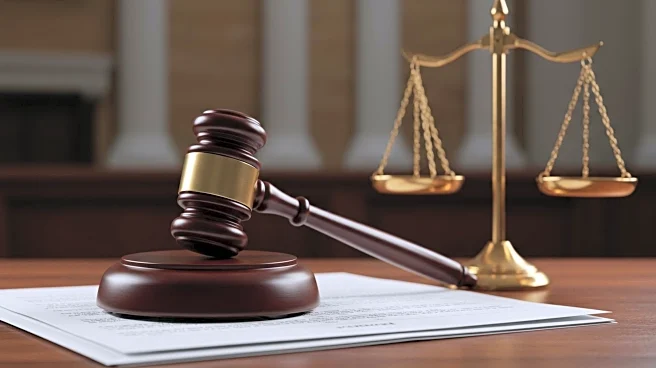What's Happening?
A federal judge in New York has declined the Justice Department's request to unseal grand jury material in the case of Jeffrey Epstein. Judge Richard Berman ruled that the government failed to demonstrate 'special circumstances' that would warrant the disclosure of grand jury transcripts and exhibits. The grand jury material includes testimony from an FBI agent who had no direct knowledge of the case, and the judge noted that the Justice Department's files on Epstein are far more comprehensive than the grand jury materials. The decision is part of ongoing legal proceedings related to Epstein's case, which has drawn significant public and political attention.
Why It's Important?
The ruling is crucial as it maintains the confidentiality of grand jury proceedings, which are typically kept secret to protect the integrity of the investigation and the privacy of involved parties. The decision may affect public trust in the transparency of the Justice Department's handling of the Epstein case. It also highlights the challenges faced by the Trump administration in addressing demands for more information about Epstein's activities and connections. The refusal to unseal these documents may impact efforts to hold accountable those implicated in Epstein's actions.
What's Next?
The Justice Department may continue to seek legal avenues to release more information related to the Epstein case. There is likely to be ongoing pressure from political leaders and the public for greater transparency. The ruling may prompt further legal challenges or legislative actions aimed at increasing access to information about high-profile cases involving public figures. Stakeholders, including victims' families and advocacy groups, may push for accountability and justice for those affected by Epstein's actions.
Beyond the Headlines
The decision raises ethical and legal questions about the balance between transparency and privacy in high-profile cases. It highlights the potential risks to victims' safety and privacy if sensitive information is disclosed. The case reflects broader societal concerns about the influence and power dynamics involved in cases of sexual misconduct and exploitation, particularly when prominent figures are implicated.












